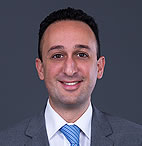
Oman
The primary sources of law in the Sultanate of Oman are the Anglo-Saxon common law and Shari’a law ("Islamic Religious Law"). Islam is the basis of legislation in the Sultanate of Oman (pursuant to Article 2 of the Constitution of the Sultanate of Oman dated 6 November 1996 ("Constitution")). While the Constitution affirms the independence of the judiciary in Oman, in practice Omani courts are subordinate to the Sultan and are subject to his influence. He acts as a court of final appeal and intercedes in special cases, such as those concerning national security.
The Constitution provides for two types of legislation in the Sultanate of Oman. Firstly, primary legislation is promulgated by the Sultan, which is known as a Royal Decree. In addition, secondary legislation is issued pursuant to Ministerial decisions using powers granted by a Royal Decree.
In many civil law jurisdictions in the MENA region, the concepts of legal professional privilege and "without prejudice" communications do not exist per se, and the parties have the right to use any document which may support their position in civil litigation. This is the position in the Sultanate of Oman, which does not have any express provision in respect of legal professional privilege. Instead, lawyer-client legal professional privilege is interpreted under Islamic Religious Law.
Indeed, lawyers in the Sultanate of Oman are bound by duties of confidentiality which, in many cases, incorporate concepts similar to legal professional privilege.


